BSS064-6 Leading and Managing Organisational Resources Assignment Sample
Module code and Title: BSS064-6 Leading and Managing Organisational Resources Assignment Sample
To
CEO of CAFEPOD Coffee co
From
Members of board of director
Subject Line: Leadership and corporate governance issues of Cafepod Coffee Co as well as strategy for mitigating those issues.
Introduction
Corporate governance is a procedure that provides a guide map for organisations to control as well as to direct. As per the opinion of Nuryana and Surjandari (2019), a well-managed “corporate governance (CG)” is all about “clarity, accountability and transparency”.
Moreover, an effective CG helps in long term economic growth of an organisation that helps to increase investors’ confidence as well as capital rise rapidly in an efficient way. However, as mentioned by Mappadang (2019), “negligence, fraud, lack of transparency” are examples of a negative CG. Leadership is equally important as CG contains a group of directors that runs a business and takes decisions that ultimately decide success of an organisation.
E-portfolio collects numerous information from online mediums and develops a report that is helpful for organisations to implement changes. It provides evidence-based learning that not only shows challenges but also shed light on positive areas that can be strengthened by organisations. This assessment has chosen CAFEPOD Coffee Co for focusing its CG and leadership for finding any complexity.
It would provide recommendations after identifying key challenges in aspects of CG for enhancing economic growth of this organisation. This assignment aims to enhance knowledge as well as understanding regarding several aspects of CG and leadership that would help this organisation to run business smoothly.
Corporate Governance
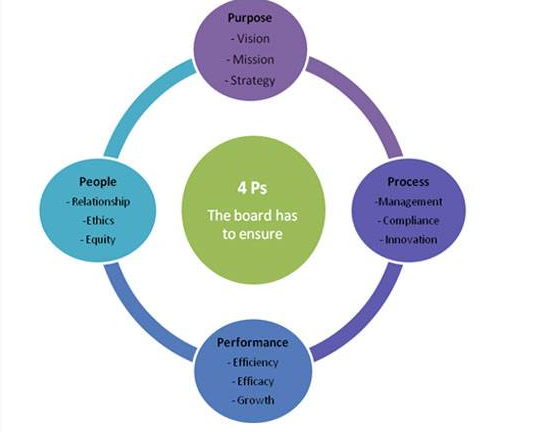 Figure 1: 4Ps of Corporate Governance (Source: Influenced by Satani, 2020)
Figure 1: 4Ps of Corporate Governance (Source: Influenced by Satani, 2020)
There are 4Ps that require to be considered by board members for developing effective CG. People are the first P that includes “stakeholders, consumers, impartial observers, board members, founders”. It actually helps organisations to understand the purpose of working towards a goal as well as to benefit its stakeholders. As mentioned by Satani (2020), Purpose is the “guiding principle” of an organisation that helps to achieve a goal and mission statement of an organisation is its purpose.
Governance also consists of a process that helps to achieve the purpose of organisation. Performance is a key for governance and analysing performance of an organisation determines its success or failure. Based on success or failure a CG implements change in CG or enhances existing processes to sustain success. In context with CAFEPOD coffee co, it is required to focus on three dimensions that is finance, ethics and sustainability for long-term success of this organisation through effective corporate governance.
Financial
 Figure 2: Importance of Corporate Finance (Source: Influenced by Galaz et al. 2018)
Figure 2: Importance of Corporate Finance (Source: Influenced by Galaz et al. 2018)
Finance helps corporate government in several ways and most importantly it helps organisations to identify risk as well as in growth of capital. As per the views of Galaz et al. (2018), organisations must involve primary risks and identifying risks based on financial performance leads to effective decision making. It helps organisations to increase growth and raise capitals through efficient steps for mitigating financial issues. Analysing financial risk would help Cafepod Coffee Co to eliminate risk and obtain long-term economic growth of the organisation through rising capitals.
Cash conversion cycle theory
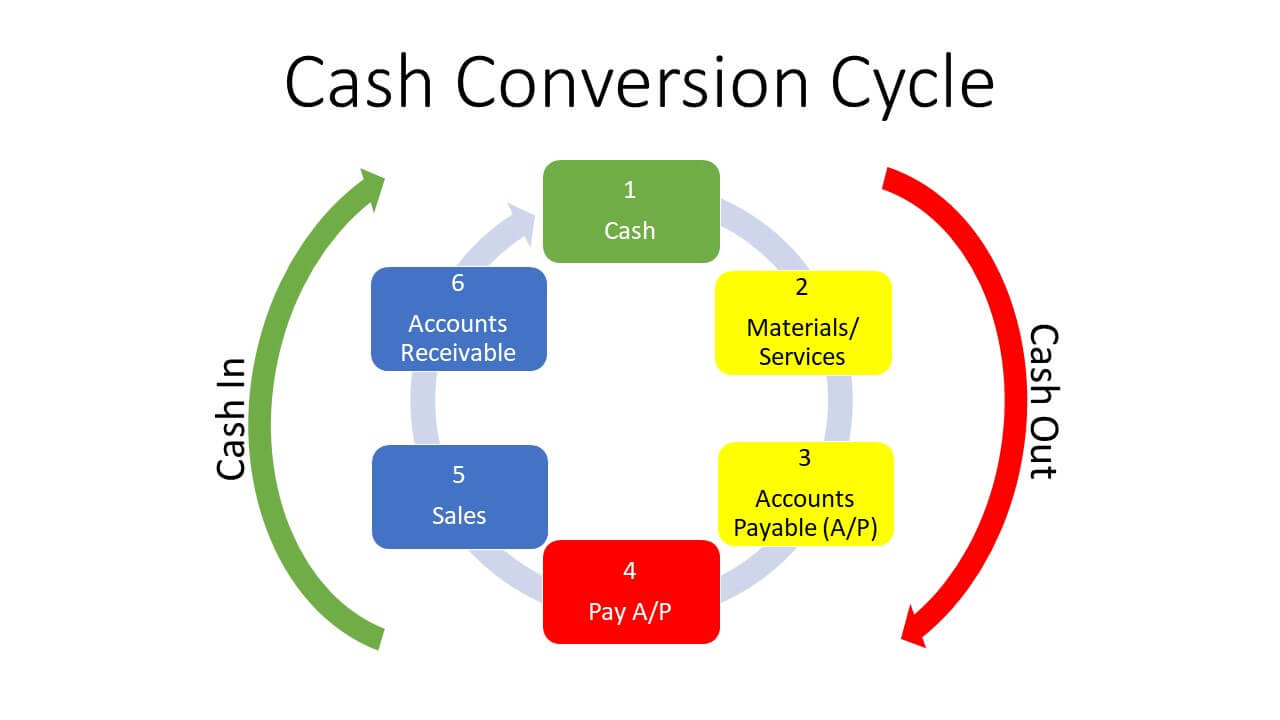 Figure 3: Components of Cash Conversion Cycle Theory (Source: Influenced by Hussain et al. 2021)
Figure 3: Components of Cash Conversion Cycle Theory (Source: Influenced by Hussain et al. 2021)
Cash Conversion cycle (CCC) is a financial theory that helps businesses to track efficiency in business. It helps organisations to manage long-term cash tie ups with business operations. As opined by Hussain et al. (2021), CCC can be broken into three points which are “inventory to sale, sale to cash, purchase payment”.
Firstly, it is important to pay for all inventory related works such as “paying vendors, providing incentives, factoring, negotiating with vendors” and few more things. This theory takes into account the required time for an organisation to sell its inventory through making investment in inventory. There are three main sources of used cash such as “inventory, operations, financing” (Hayes, 2022). It varies business to business based on operations.
 Figure 3: CCO Calculation (Source: Influenced by Linh and Mohanlingam, 2018)
Figure 3: CCO Calculation (Source: Influenced by Linh and Mohanlingam, 2018)
In order to calculate average inventories turnover period of CAFEPOD through CCO theory it is important to identify cost of sales and average inventories held. It then requires be dividing and multiplying by the number of business operation days which is generally considered as 365. It would help organisations to calculate average inventories turnover period.
CAFEPOD can calculate its inventory turnover through CCC and it would be beneficial to identify spending in an effective way. As mentioned by Saker-Clark (2018), CAFEPOD has witnessed 66% growth and is expecting to generate £11m in 2019. Therefore, CCC would assist organisations in decision making and obtain maximum economic growth.
Ethical
Ethical consideration is another aspect of corporate governance that looks after “ethical behaviour, environmental awareness, corporate strategies, compensation and risk management”. As per the opinion of Chen (2022), ethical corporate culture is an example of good CG. However, “toxic workplace culture, unethical leadership, harassment of employees, questionable technology, unrealistic goals” are examples of poor CG in ethical aspects (Rani, 2019). In context with CAFEPOD, it is essential to take ethical decisions and obtain an ethical workplace culture as well as business operation to satisfy its stakeholders.
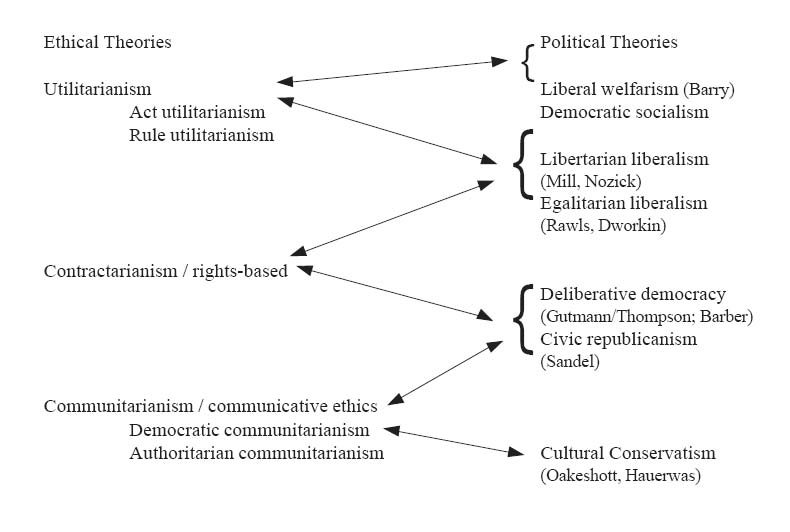 Figure 4: Different Ethical Theories (Source: Influenced by Singh and Mishra, 2018)
Figure 4: Different Ethical Theories (Source: Influenced by Singh and Mishra, 2018)
There are several types of ethical theories such as “utilitarianism, contractarianism, communitarianism”. As mentioned by Singh and Mishra (2018), utilitarianism helps organisations to take social, economic or political decisions that would foster happiness rather than harming stakeholders of an organisation. Contractarianism depicts that everyone has the right to make decisions under mutual agreements.
Communitarianism refers to establishing good relationships between communities based on politics. Utilitarianism is a more suitable and less complex ethical philosophy that would help CAFEPOD to make more ethical choices that are deeply rooted in social well-being. Therefore, the idea of utilitarianism would provide a direction to make decisions that are ethical and less complex.
Sustainability
Triple Bottom Line Theory
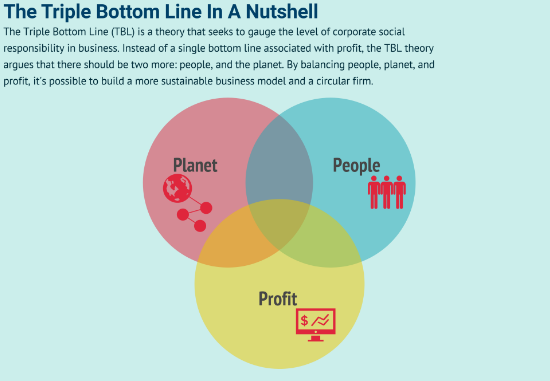 Figure 5: Aspects of Triple Bottom Line Theory (Source: Influenced by Liang et al. 2018)
Figure 5: Aspects of Triple Bottom Line Theory (Source: Influenced by Liang et al. 2018)
Triple Bottom Line theory (TBL)” focuses on sustainability that includes three aspects such as “economic, social and environmental”. This theory promotes three bottom lines instead of one bottom line in an organisation. As per the views of Liang et al. (2018), an organisation required to enhance profitability through social and environmental developments. Social refers to the community CAFEPOD belongs to and its contribution in that society. Environment means to minimise harm to this planet in everyday’s business operations.
As mentioned by Boydell (2018), coffee producing countries suffer from poverty and lack of social infrastructure. Moreover, poor health and educational systems are another major problem of these countries. However, for producing coffee this organisation harms biodiversity as it cuts down trees and reduces wildlife population. There is no evidence of taking measures in this regard or providing benefits to the community, in which CAFEPOD operates.
Therefore, in order to obtain sustainability in business operation CAFEPOD requires to help communities and to plant more trees. Sustainable measures would increase brand awareness and reputation of this organisation that would be beneficial to increase economic growth through increasing profitability.
Leadership
Traditional perspective
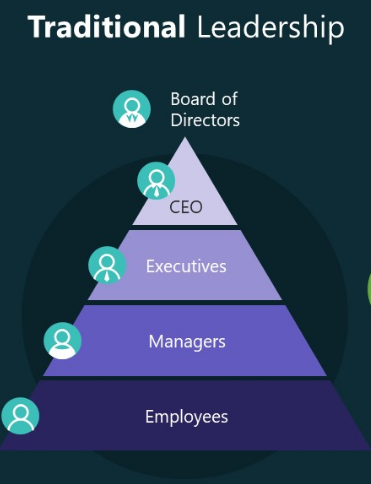 Figure 6: Traditional Leadership Approach (Source: Influenced by Purwanto, 2020)
Figure 6: Traditional Leadership Approach (Source: Influenced by Purwanto, 2020)
“Traditional leadership” is all about inheritance of power from its precursor. According to Koenane (2018), traditional leadership means “top down” types of leadership that provides power to issue order and command action. It is a kind of authoritarian leadership approach that is based on “dictatorship or nepotism”. It can be observed in family run businesses in which a high amount of shares is held by family members. However, this type of leadership has several negative impacts on business.
As mentioned by Purwanto (2020), “conflict between directors or management, communication breakdown, lack of shared goals” are main issues with this type of leadership. Authoritative is an outdated leadership style that does more harm in daily business operations.
Traditional leadership is harmful as there is lack of chances for innovation and employees feel not reneged with organisation. Employees’ motivation falls due to dictatorship and an organisation loses its agility, which is very important for running a business. Despite these disadvantages, traditional leadership also has some benefits in running daily business operations. As per the views of Khaliq et al. (2021), traditional leadership approaches provide a sense of “stability” in business and can “navigate” through complex situations.
Moreover, it widened the path for adaptation and it tends to be effective in business. Effective business operation possible as it is examined over time and has proven benefits. However, in modern days, traditional leadership can do more harm than good. CAFEPOD can get few advantages in case of implementation of traditional leadership but it might find more trouble.
Conflict between management can slow down organisational growth and employees can feel unsatisfied as well as less motivated in the workplace. It also can develop a toxic workplace culture that is not ethical in terms of business. Therefore, CAFEPOD can be in serious problems and it would harm business operations.
Regenerative leadership
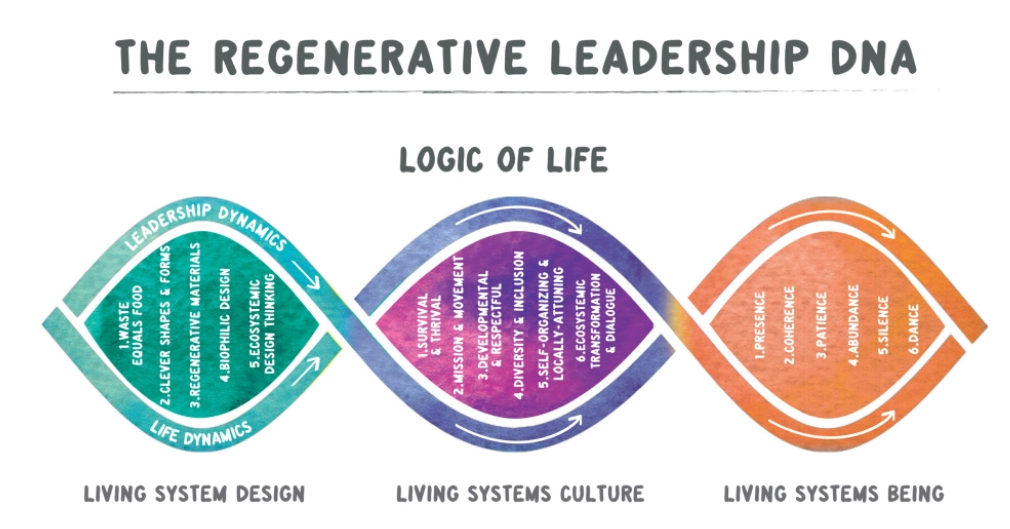 Figure 7: Aspects of Regenerative Leadership Approach (Source: Influenced by Reynolds, 2021)
Figure 7: Aspects of Regenerative Leadership Approach (Source: Influenced by Reynolds, 2021)
“Regenerative leadership” approach refers to a leading way that helps to foster life-confirming actions. As mentioned by Reynolds (2021), this type of leadership utilises opportunities for renewing the economy after any damage or loss. It requires consciousness to lead an organisation in a systematic way that is immersed in logic of life. This leadership approach has numerous benefits in organisation, especially in a hostile situation.
As per the opinion of Mark and Vangelova (2022), regenerative leadership approach helps to adapt quickly in tedious situations and helps to make decisions after evaluating loss of a business. In context with CAFEPOD, democratic leadership style can be implemented as a regenerative perspective. This mentioned leadership style would empower employees and would help in innovation.
Employees would take equal participation in business operations and would know their responsibility. They would be well aware of purpose as well as goals of CAFEPOD and can accomplish it vin an effective way through shared responsibility. Moreover, it may obtain an ethical workplace culture as in this leadership style employees feel motivated and satisfied. Thus, democratic leadership approach provided a regenerative perspective of leadership.
Contemporary leadership in technological sector
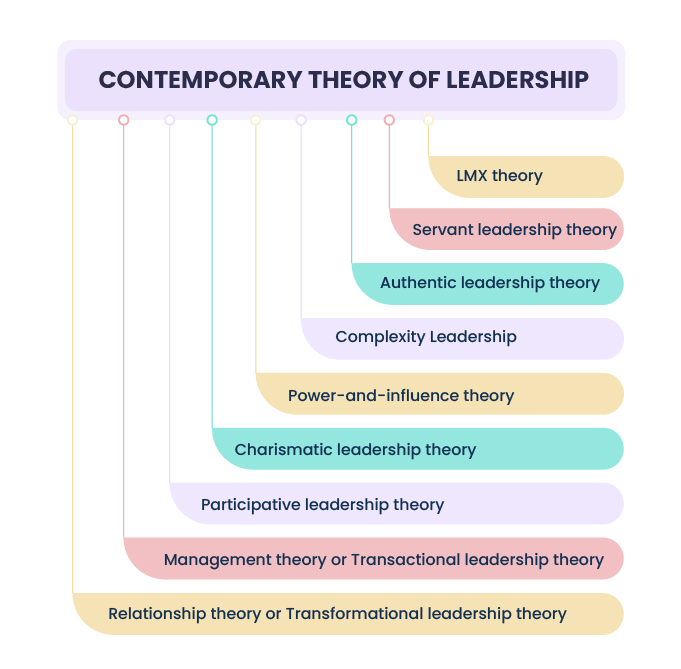 Figure 8: Contemporary Theory of Leadership (Source: Influenced by Vikhanskiy and Mirakyan, 2018)
Figure 8: Contemporary Theory of Leadership (Source: Influenced by Vikhanskiy and Mirakyan, 2018)
There are several theories under contemporary leadership and each theory influences on a personal scale that not only inspire people but also achieve organisational goals as well as make a difference in society. As stated by Vikhanskiy and Mirakyan (2018), contemporary leaders have a sharp contrast from traditional leadership. This type of leadership style helps organisations to make innovation and adapt in a new environment quickly.
All of the leadership styles under contemporary leadership are beneficial for organisations to implement any technological innovation. As per the views of Owusu-Addo (2022), “resilience, vision, empathy, optimism, courage, culturally sensitive, people centric” are some of the personality traits of contemporary leaders. Moreover, they have a strong interpersonal and communication skill as well that helps to implement technological changes in an effective way. Firstly, clarity in vision and transferring it in all levels of business operation helps organisations to achieve goals efficiently.
Clear vision regarding technological innovation would provide success to CAFEPOD. Besides, it reduces the employee resistance towards change and a successful change in the technological sphere can be obtained through this organisation. People centric approach of contemporary leaders is beneficial for employees as well as it accelerates acceptance and adaptation of new technology within the organisation.
Optimism is another personality trait of contemporary leadership approaches and it helps employees to stay motivated as leaders are intensely optimistic in every approach. Resilience helps contemporary leaders to keep calm in times of hostile situations and can bring effective change in the technological sector after suffering from any problem before.
Innovative and challenging characteristics of contemporary leaders are the most important trait in the technological sector. The business environment is changing constantly and it requires courage to proceed in a new direction for achieving success. Technological disruption is frequently occurring and contemporary leadership can bring success to organisation through implemented effective as well as sustainable change in CAFEPOD.
Conclusion
From above-mentioned analysis, it can be concluded that CAFEPOD coffee co has a leadership style that has influenced CG of the organisation as well as maintained operational management for competitive advantages. Effective decision-making of leadership is identified to influence risk management of organisations which has been seen to directly impact financial performance management of overall company.
As per cash conversion cycle theory, CAFEPOD coffee co would ensure long-term cash tie-ups of company which would ensure effective financial decision-making over financial benefits. It can be noted that effective decision-making on CG would influence strategic operational management in a competitive business market which would effectively develop financial risk management in a leadership approach.
Leadership management of this organisation is needed to follow an inventory system based on the production of company including principles of CCC theory. In such ways, leadership is identified to influence financial management on grounds of employee management in operational activities. Ethical responsibility and technological inclusion for sustainability are found on grounds of effective operational management.
In a similar vein, employee management would be facilitated effectively towards great sustainable operational management initiatives towards financial development. Hence, CG would be used in this management process that would surely inform ethical operational activities in company and leadership would be beneficial to financial identity of CAFEPOD.
Recommendations
Clarification of brand role in operational strategy
Leadership in CAFEPOD is highly recommended to include an ethical operational strategy based on ethical job roles and responsibilities. As suggested by Yang et al. (2018), a leadership approach is needed to clarify job role of each employee by keeping ethical standards. In such ways, operational management of this organisation would be effective towards competitive financial management.
Delivering direction, alignment and commitment
It is highly needed to provide strategic direction to employee base as leadership is used to direct employees properly. Additionally, leaders would need competitive advantages in existing marketplace and are needed to align business principles in operational management (Mitchell and Calabrese, 2019). A highly committed leader would surely reflect on good performance management for impacting financial progress in company.
Cash flow management
Cash flow management would ensure a sustainable practice of leadership including strategic resource purchasing and usefulness of companies for inventory management. CAFEPOD leadership is needed for consumer-centric inclusion that would highly develop business sustainability as well as management of financial goals. In such ways, a leadership approach would be effective highly towards financial management of operation activity in company.
References
Boydell, H., (2018) Sustainability in Coffee: What Are The Main Issues? Available at: https://perfectdailygrind.com/2018/11/sustainability-in-coffee-what-are-the-main-issues/ [Accessed on: 5th October, 2022]
Chen, J., (2022) Corporate Governance Definition: How It Works, Principles, and Examples. Available at: https://www.investopedia.com/terms/c/corporategovernance.asp [Accessed on: 5th October, 2022]
Galaz, V., Crona, B., Dauriach, A., Scholtens, B. and Steffen, W., (2018). Finance and the Earth system–Exploring the links between financial actors and non-linear changes in the climate system. Global Environmental Change, 53, pp.296-302.
Hayes, A., (2022) Cash Conversion Cycle (CCC): What Is It, and How Is It Calculated?. Available at: https://www.investopedia.com/terms/c/cashconversioncycle.asp [Accessed on: 5th October, 2022]
Hussain, S., Hassan, A.A.G., Quddus, A. and Rafiq, M., (2021). Cash conversion cycle sensitivity by moderating role of exchange rates volatility on firm’s financial performance. Business: Theory and Practice, 22(2), pp.277-289.
Khaliq, M., Usman, A. and Ahmed, A., (2021). Effect of leadership style on working culture and employees motivation. The Journal of Educational Paradigms, 3(1), pp.166-170.
Koenane, M.L.J., (2018). The role and significance of traditional leadership in the governance of modern democratic South Africa. Africa Review, 10(1), pp.58-71.
Liang, X., Zhao, X., Wang, M. and Li, Z., (2018). Small and medium-sized enterprises sustainable supply chain financing decision based on triple bottom line theory. Sustainability, 10(11), p.4242.
Linh, N.T.P. and Mohanlingam, S., (2018). The effects of cash conversion cycle on profitability: An insight into the agriculture and food industries in Thailand. Asian Journal of Business and Accounting, 11(1), pp.97-119.
Mappadang, A., (2019). Do Corporate Governance Mechanism Influences Tax Avoidance and Firm Value. International Journal of Academic Research in Business and Social Sciences, 9(10), pp.203-217.
Mark, V. and Vangelova, N., (2022). Contributions of Regenerative Leadership to team collaboration and Social Sustainability.
Mitchell, G.E. and Calabrese, T.D., (2019). Proverbs of nonprofit financial management. The American Review of Public Administration, 49(6), pp.649-661.
Muda, I., Maulana, W., Sakti Siregar, H. and Indra, N., (2018). The analysis of effects of good corporate governance on earnings management in Indonesia with panel data approach. Iranian Economic Review, 22(2), pp.599-625.
Nuryana, Y. and Surjandari, D.A., (2019). The effect of good corporate governance mechanism, and earning management on company financial performance. Global Journal of Management and Business Research, 19(1), pp.27-39.
Purwanto, A., (2020). Effect of servant, digital and green leadership toward business performance: evidence from Indonesian manufacturing. Sys Rev Pharm, 11(11), pp.1351-1361.
Rani, A., (2019). Business Ethics And Corporate Governance Transparency In Business. Think India Journal, 22(14), pp.5236-5241.
Reynolds, E.M., (2021). Transdisciplinary Leaders, Leading and Leadership Towards Planetary Developmental and Regenerative Communities, Cultures and Civilizations, Or Towards a Butterfly Civilization. Integral Leadership Review, 21(1), p.31050.
Sarker-Clark, H., (2018) CafePod appoints advisors to secure £3m investment to fuel expansion. Available at: https://www.thegrocer.co.uk/fundraising/cafepod-appoints-advisors-to-secure-3m-investment-to-fuel-expansion/573672.article [Accessed on: 5th October, 2022]
Satani, K.N., (2020). A Study of Corporate Governance Practice in Indian Banking Sector: With Special Reference of Yes Bank. Vidhyayana-An International Multidisciplinary Peer-Reviewed E-Journal-ISSN 2454-8596, 6(2).
Singh, A.K. and Mishra, N.K., (2018). ETHICAL THEORY & BUSINESS. International Journal of Humanities and Social Development Research, 2(1), pp.97-113.
Vikhanskiy, O.S. and Mirakyan, A.G., (2018). New millennium: Managerial anomalies and contemporary leadership concepts.
Owusu-Addo, A., (2022). Critical Evaluation of the Evolution of Traditional and Contemporary Leadership and Management Theories. Scholars Journal of Science and Technology, 3(1), pp.579-585.
Yang, S., Ishtiaq, M. and Anwar, M., (2018). Enterprise risk management practices and firm performance, the mediating role of competitive advantage and the moderating role of financial literacy. Journal of Risk and Financial Management, 11(3), p.35.
Know more about UniqueSubmission’s other writing services:

